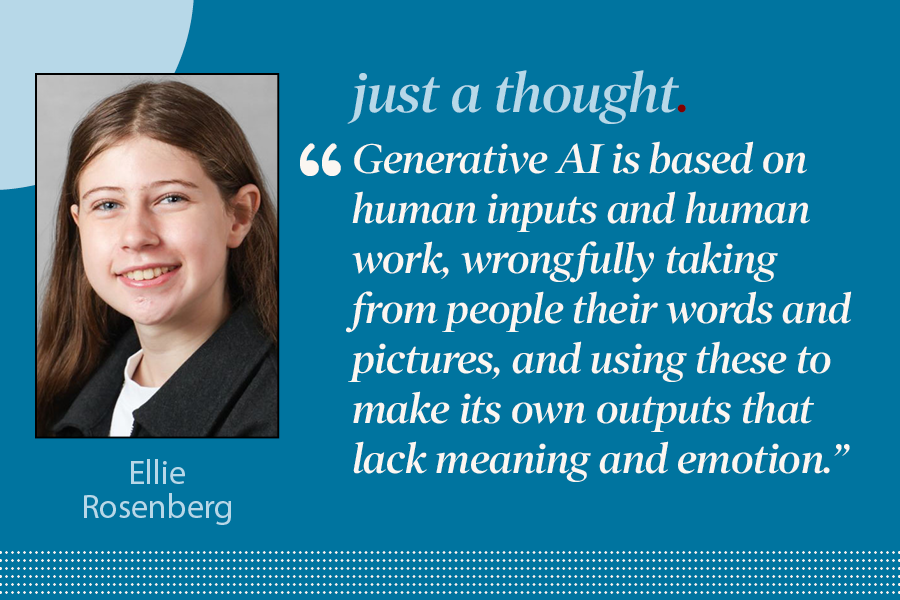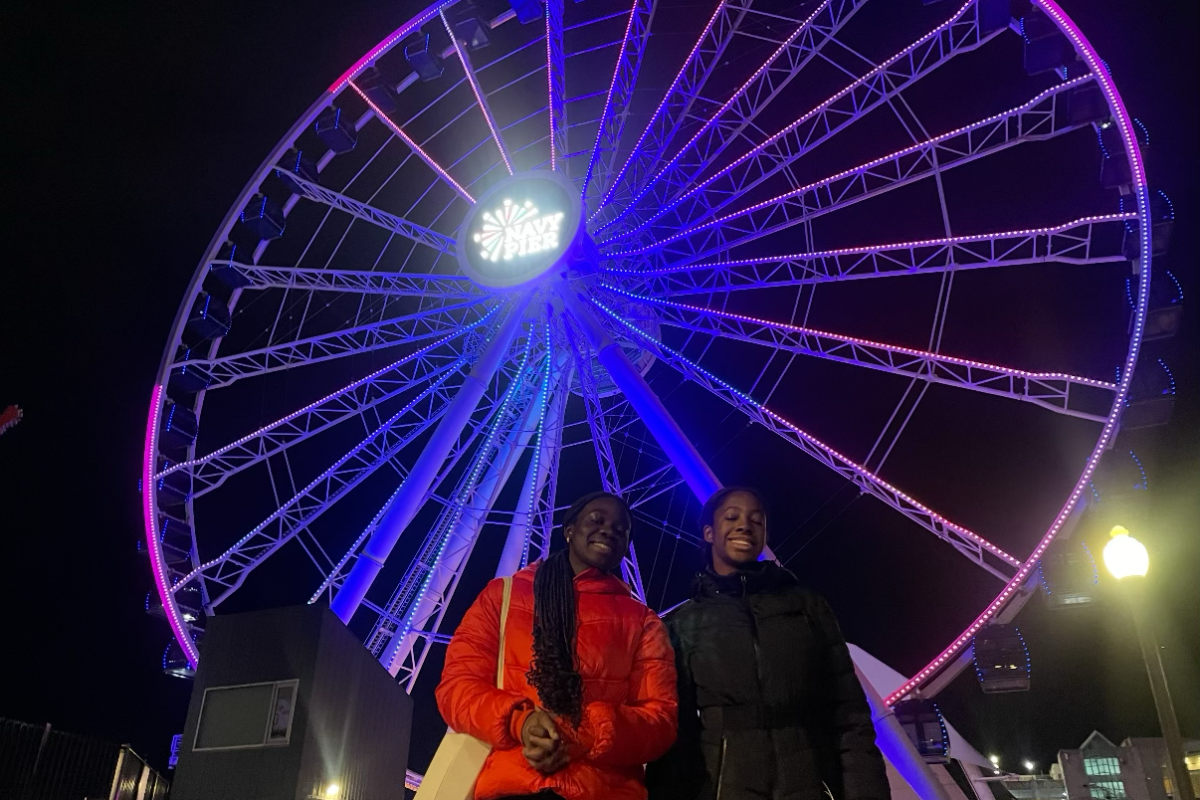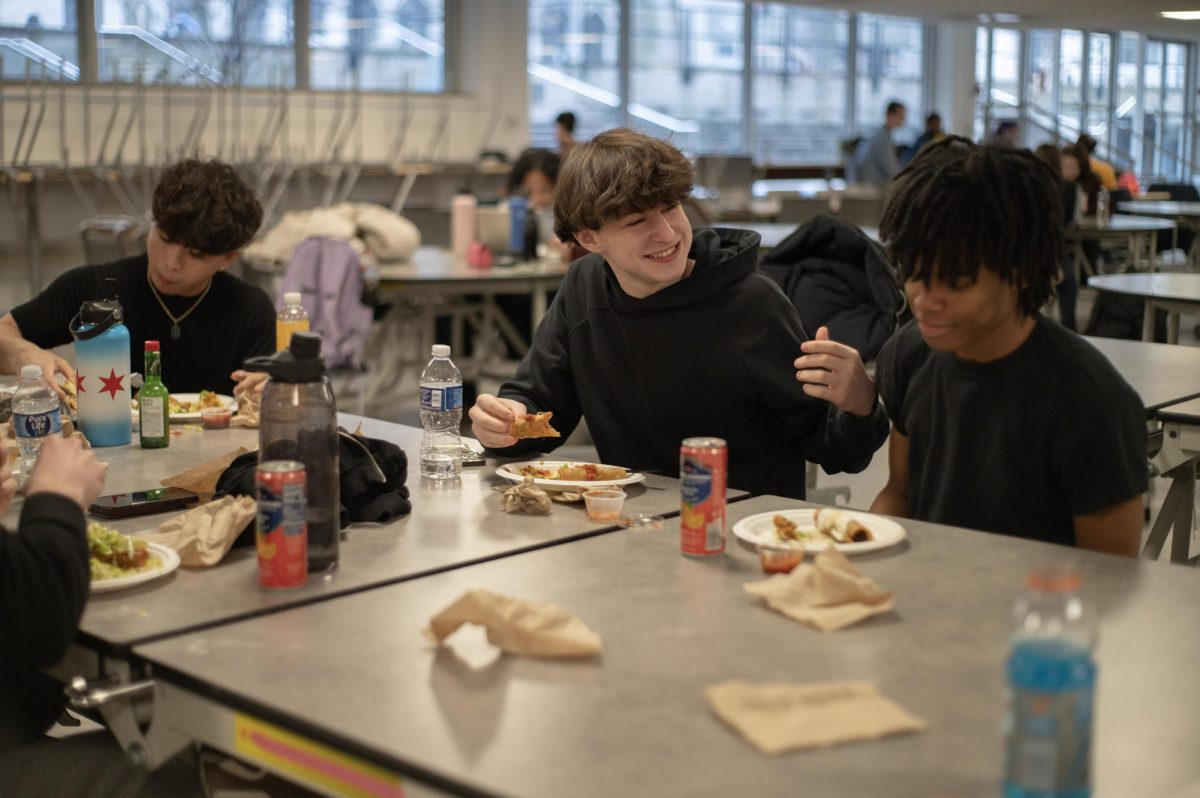Only about 3% of the books published in America are works of translation. Through his role as editor-in-chief of the Ouroboros literary translation journal, junior Adam Tapper is hoping to change that.
Since joining Ouroboros as a ninth grader, translation has been an integral part of Adam’s identity. He has been able to draw inspiration from his cultural heritage, seeking to make minority languages accessible to all readers and connect with his own ancestry. Adam is Jewish and Eastern European.
“I think part of what drives me and a lot of other people in translation is raising awareness — not really awareness, but making people aware that literature doesn’t only exist in English, French and German,” Adam said. “It also exists in all these other minority languages that people don’t normally think of.”
Adam’s passion for reading and writing began during the pandemic when he was looking for things to do to pass the time. He found translation a bit later during his first club shopping event.
“I saw the club video. I had heard about it from my siblings, and I thought it sounded interesting, so I decided to go and see what the club was like,” Adam said. “I thought it was cool, so I stayed with it. Eventually, I started to really appreciate it and become passionate about it.”
Adam primarily translates from Yiddish and German, two languages to which he feels a deep connection due to his family’s heritage. Yiddish is a language spoken by Jewish people in central and eastern Europe. In the beginning of the 20th century, part of Adam’s family spoke German, while the majority spoke Yiddish. However, these languages began to fade as they were no longer passed down through generations.
“My grandfather spoke Yiddish, but he never taught it to my mom or my aunt, and it kind of died with him,” Adam said. “So being able to speak these languages and bring their literature into English has helped me reconnect with a part of my history and culture that feels maybe isolated.”
Through his translation from Yiddish, Adam hopes to revive and connect with a part of Jewish culture that he believes is quickly disappearing. It is estimated that there are about a quarter million Yiddish speakers in the United States. Before the Holocaust, there were about 11 million Yiddish speakers worldwide.
Adam’s fellow Ouroboros member, senior Lucie Bhatoey-Bertrand, admires Adam’s dedication to translation and his connection with his culture.
“Adam’s passion for translation is honestly something I find really inspiring,” Lucie said. “I think that it’s something he really values and something that he is so excited about, which brings other people joy, and I think that they get more excited about doing translation through seeing his passion.”
Lucie recognizes the intersection of translation and identity, and she believes that translation is not just about language but also expressing a part of yourself.
“It’s about identity and sharing a part of yourself, which I think Adam has tried to engage with,” she said.
Adam’s work in translating has not gone unnoticed. In December, he placed first at the 2024-25 Illinois High School Translation Competition for translating part of a contemporary German novel into English.
Adam is also a part of the Renaissance literary magazine, and through his work in both magazines, he has identified an intersection between translation and writing.
“Being exposed to a lot of different styles from across the world has helped me when I go to write. I think about these things that I have translated, not just what I have read in English,” he said. “I’ve kind of created a fusion of these different styles that I think has improved my writing. I’ve been able to incorporate a lot of interesting foreign concepts in my writing.”
After high school, Adam hopes to continue translating and giving voices to minority languages.
“I definitely do want to continue translating, I think that over the past three years it has become very integral to my identity,” Adam said. “Throughout my life after high school, I would like to continue publishing my work, maybe explore the possibility of a book-length manuscript translation, just continuing to spread translation and literature from minority languages to the American population.”























































